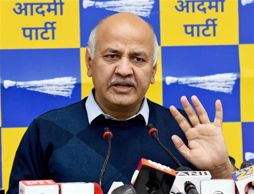
Ashis Dutta Roy
Mark Zuckerberg’s testimony to the US Congress has brought a new wave of uncomfortable revelations about the social network. Like how it spies even on people off the platform and how even the Facebook founder’s data, too, has not been safe.
While the row certainly seems to have sparked a tinderbox of privacy concerns, has really it changed anything for its users? Has the Facebook-Cambridge Analytica scandal surprised or angered you? Learning that the personal data of millions of people was scraped off without their consent and used to manipulate political campaigns — has it affected your social media use? Are you going to #DeleteFacebook now?
The answer from a large majority of users has been surprisingly a resounding “No”.
“Not. One. Bit,” says Anisha Saigal, a 26-year-old editor for a Delhi-based publishing company, when asked if she was incensed, or at least alarmed, by the privacy breach row. “It was a given. I knew that the information I was handing out to these social networks was going to be mined and used in some way. If you did not, you were just too naive,” she says.
It wasn’t a scientific poll, meticulously planned and executed. It was a random selection of under-30s-from-urban-India — the defining demographic of 2018 India. Admittedly, speaking to a different cross-section of society may have yielded different results. But those results would be open to contest too right?
With social media, everything is. Facts, figures, news, opinion — everything has been pushed towards the edges and the extremes. You are either with us, or you are against us; “I am here just to smell the roses and enjoy the breeze” is not an option, says Abhishek ‘Anid’ Dutta, 27, an indie filmmaker.
“It feels like an echo chamber. I only see my opinions or the opinions of those around me reflected back at me. This polarisation of my newsfeed – and also Facebook’s very apparent, aggressive push to monetise content it is asking me to look at has been a major turn off,” he says.
And his point conveniently introduces our second act. Facebook disenchantment? Yes. Because of Cambridge Analytica? No.
Abhishek has dialled down his activity on Facebook and other social media platforms by over half in the last one year. And he is not alone. Anisha says it’s down to 30 per cent of what it was at its peak some time in 2015-16.
Meghna Talwar, a 27-year-old independent media professional, says she’s cut it down by 50 per cent too in the last one year.
Privacy concerns? From all three, the answer comes in proper Facebook lingo: It’s complicated. Anisha says she turned it down mostly because of waning interest. “I have been an early adopter of most social media platforms and now they just don’t interest me anymore,” she says, listing Facebook, Twitter, Instagram and Snapchat among her most used networks. But it’s also started to become less useful, she adds.
Abhishek says it is due to the one-sided reinforcement of existing views that he has gradually pulled back from social media.
“Since I am a foodie and move in such kind of circles, Facebook pushes me to attend food festivals, which is great. But it becomes a problem when it doesn’t offer me a choice between that food festival and a neighbourhood jagrata (religious gathering),” he said. “Not that I am pining to attend a jagrata — but you see it keeps showing me only the things I want to see and that is not what the real world is like at all,” he said. Meghna, however, says privacy has been on her mind. This month, she switched her Instagram account to “private”. “I had my sister’s wedding coming up and I realised I was sharing too many photographs that I felt wasn’t okay to share on the unprotected world wide web,” she says. “Over the last one year, I have deleted most of my personal info from Facebook. There has been a conscious effort to scale down what I share and with whom,” she adds.
Subjectively speaking, a Facebook exodus has been happening around us for a while now. It has been difficult to measure because of a). The hordes of new users, channelled by dirt-cheap mobile internet and growing smartphone adoption and b). The surge of loud, vocal “influencers” who hog the social media limelight — sometimes even deservedly.
But the disenchantment is there and it will only become more pronounced – to say social media will last forever maintain its current bearing, will be akin to folks who built an entire universe around Yahoo Messenger. We know how that went. Sure, WhatsApp can arguably be called its successor. But it’s not the same thing.
“When we were younger, there was this urge to communicate to the world what we thought of it. Now, I do not feel as compelled to share an opinion about everything,” Meghna says. For Facebook, that might just be the sound of Undertaker’s bell.
What Mark Zuckerberg told US Congress he won't fix
Most of Facebook founder Mark Zuckerberg's Congressional testimony was a sappy mea culpa. Repeatedly, the billionaire served deadpan apologies to US lawmakers, saying this huge privacy row was his fault. But when it came to one very critical concern, the 33-year-old billionaire had no commitments to make. Under questioning by a US representative, Zuckerberg admitted that Facebook collects "data of people who have not signed up for Facebook." Lawmakers and privacy advocates immediately protested the practice. But Zuckerberg flatly ignored a lawmaker's call to fix the problem. Later that week, Facebook said it had no plans to develop a tool to let non-users opt out of this invasive procedure. Nor would it develop a way for non-users to find out what the company knows about them. While Facebook lamely says it does this for "security", critics say that Zuckerberg has not said enough about the extent and use of the data. The company instead points to workarounds that only technically proficient (read geeks) would know about.
What you can do to
stay safer
We’d recommend you upgrade to a dumbphone from your current Android or iOS spy-agency dreamphone but we understand it’s not that easy. Here are three much easier things you can do to protect yourself online.
Tweak privacy settings
Visit that often ignored ‘privacy settings option’ in your favourite social network. Take some time out to study — who can see your profile, your updates and your photos. Change them, if need be. Unless you are an aspiring social media sensation (we know, who isn’t, but some of us have moved on) limit access to your stuff to the smallest circle possible.
Use a snooping blocker
Did you known social media websites track you even when you are not on their site? You visit a news site — boom — they collect data on you. You browse through holiday destinations — and Facebook just made a few bucks by showing you the best deals when you return to it. You can stop all of this nonsense by just installing a privacy blocker like ‘Ghostery’ or ‘Ublock’ on your browser and then choose to have these social media snooping trackers blocked from websites you visit. Neat!
Dump the apps
This one can be a little inconvenient and daunting for some but consider it. Most social media apps like Facebook collect a ton of data from your smartphone – your contacts, location history and even messages? They say these are “critical” to provide you better services but everyone knows these only help them track your online presence and show you more targeted advertisements. You can cut off their tentacles by using these services only from your mobile or desktop browser – when you need. Using these services through the browser cuts off access to many of the invasive data collection methods. Go one step further and use a privacy-first browser like ‘Firefox Focus’ to delete every browsing session so very little data sticks.
A much more peaceful life beckons ...



























